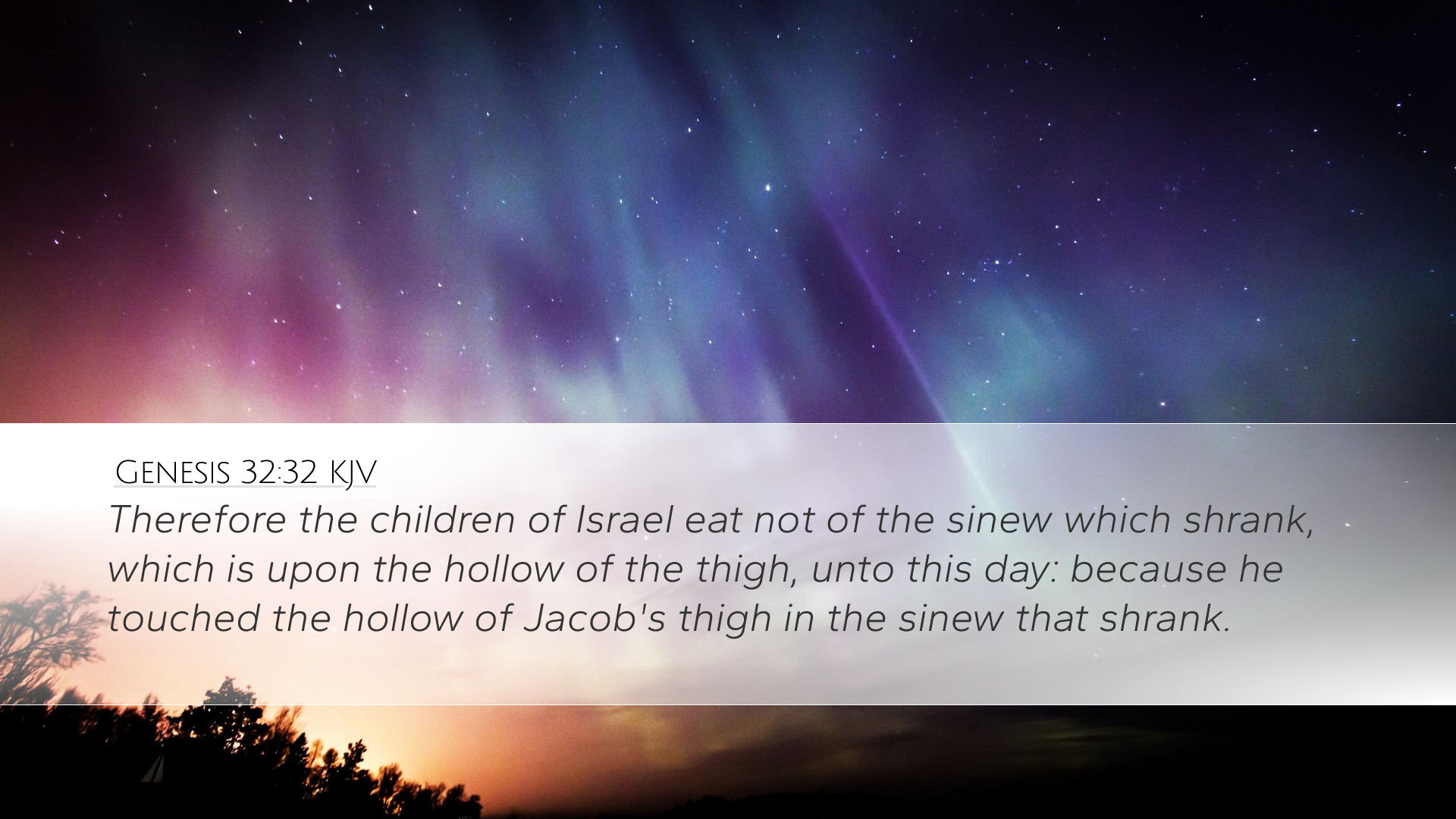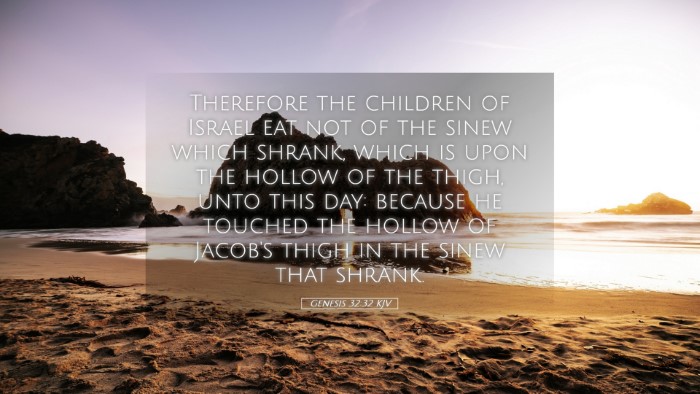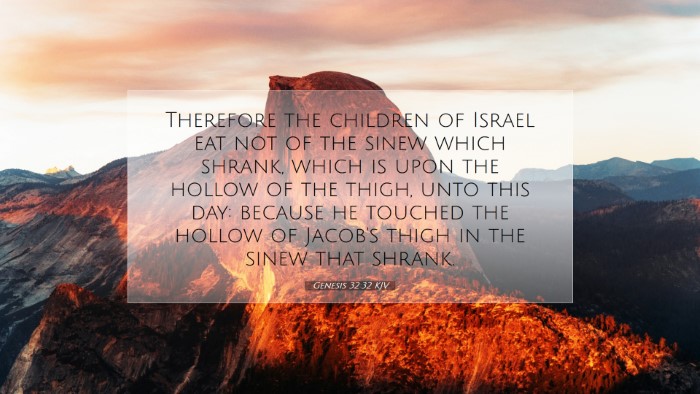Genesis 32:32 Commentary
Text of the Verse: "Therefore the children of Israel eat not of the sinew which shrank, which is upon the hollow of the thigh, unto this day: because he touched the hollow of Jacob's thigh in the sinew that shrank."
Introduction to the Verse
This verse concludes the account of Jacob's wrestling with God, serving as a pivotal moment that would alter the course of Israel's history. The prohibition regarding the sinew shows how deeply this event impacted Jacob and his descendants, linking their dietary practices to a divine encounter.
The Context of the Jacob Wrestling Narrative
The event described in Genesis 32:22-32 holds significance as Jacob prepares to meet his brother Esau. This night of wrestling signifies not just a physical struggle but a spiritual confrontation that leads to Jacob's transformation and the establishment of Israel as a nation.
Insights from Public Domain Commentaries
Commentaries by notable figures like Matthew Henry, Adam Clarke, and Albert Barnes provide depth to the theological implications of this encounter.
Matthew Henry's Commentary
Matthew Henry emphasizes the importance of Jacob's struggle, interpreting it as a demonstration of Jacob's resolve and persistence. The sinew that shrank symbolizes the vulnerability of man in the face of divine power. Henry notes that this incident illustrates how God can oppose the proud yet supports the humble. The marking of the sinew as a prohibition serves as a reminder of God's deliverance of Jacob and the establishment of the nation that would bear his name. Thus, the dietary restriction becomes a perpetual symbol of God’s covenant with Israel.
Albert Barnes' Commentary
Albert Barnes provides a detailed analysis of the significance of the sinew. He indicates that this was not merely a physical injury but a divine mark intended to serve as a reminder. The act of Jacob being touched in this way is symbolic of God's involvement in his life, and through the prohibition, Barnes suggests that it reiterates the importance of obedience to divine statutes through generations. The preservation of the sinew both physically and in cultural tradition underscores the permanence of Jacob's encounter with God and acts as a reminder to Israel of their heritage.
Adam Clarke's Commentary
Adam Clarke adds a nuanced perspective by exploring Jewish tradition surrounding this narrative. He notes that the sinew in question is likely the sciatic nerve, which became a distinctive characteristic among the Israelites. Clarke relates this to a broader understanding of the covenantal relationship between God and Israel, grounding their identity in divine encounters. He points out that the act of refraining from eating this sinew associates the Israelites with their forefather's struggle and highlights their unique relationship with God, a theme that resonates throughout the Old Testament.
Theological Implications
The discussion surrounding Genesis 32:32 provides several theological implications:
- Transformation through Struggle: Just as Jacob's identity was transformed from deceiver to a prince with God, so too are Christians promised transformations through their struggles.
- The Mark of God’s Grace: Jacob's limp serves as a tangible reminder of God’s grace, illustrating that God can work through our weaknesses.
- Cultural and Religious Identity: The dietary restriction shows how physical practices can carry deep spiritual significance, connecting faith and everyday life.
Application for Pastors and Theologians
For pastors and theologians, the commentary on this verse encourages them to explore how struggles can lead to spiritual breakthroughs. It serves as a reminder that God often meets us in our weakness and that our lives carry remnants of His grace. Pastors may also find the cultural aspect of the dietary law relevant for teaching congregations about the intersections between faith, identity, and practice.
Conclusion
Genesis 32:32 encapsulates a moment that is deeply pivotal for Jacob, the nation of Israel, and indeed the narrative of Scripture. The insights drawn from esteemed commentaries highlight how this encounter serves as a profound reminder of God's interaction in human affairs, the significance of cultural identity linked to faith, and the transformations that arise through struggles. This verse not only carries historical significance but holds ongoing relevance for believers today.


